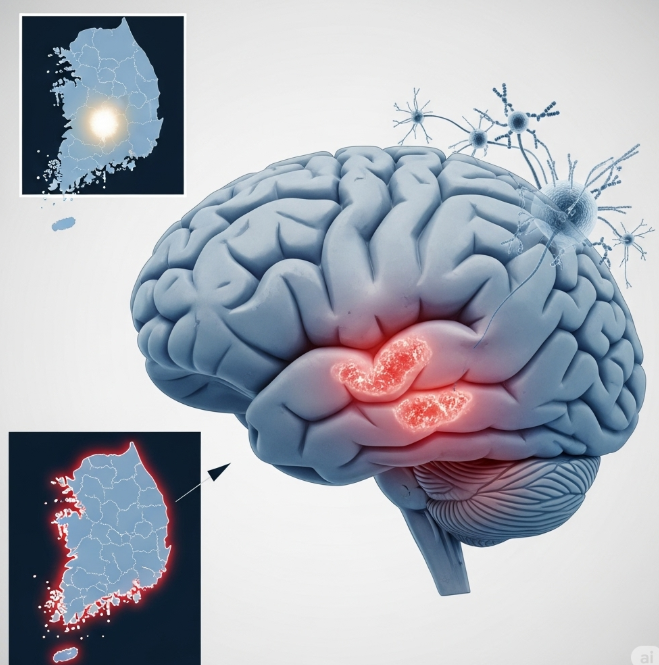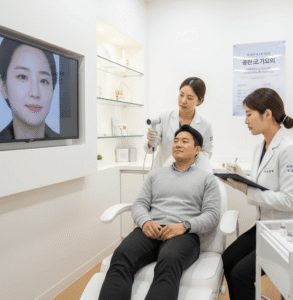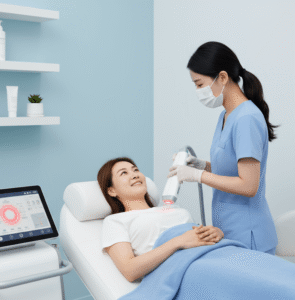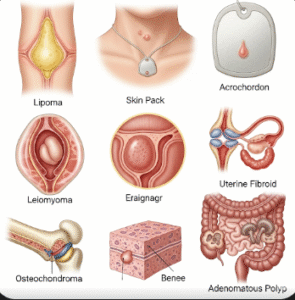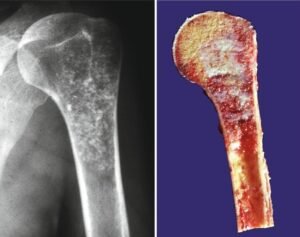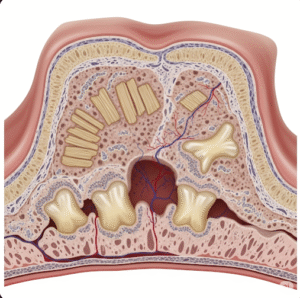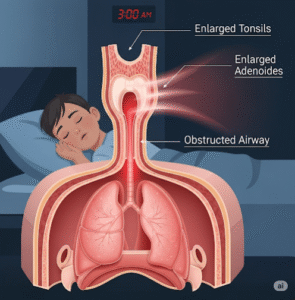Overview
Hashimoto encephalopathy (HE) is a rare, autoimmune-related neurological disorder associated with Hashimoto’s thyroiditis. It causes cognitive dysfunction, seizures, confusion, and sometimes psychiatric symptoms, despite normal or mildly abnormal thyroid hormone levels.
In Korea, HE is recognized in specialized neurology and endocrinology centers. Korean hospitals provide comprehensive diagnostic testing, immunotherapy, and long-term neurological management to improve patient outcomes.
What is Hashimoto Encephalopathy?
Hashimoto encephalopathy is a brain disorder linked to autoantibodies against thyroid antigens, leading to inflammation of the brain. Symptoms can be sudden or progressive, and the condition can affect adults of any age, with women more frequently affected than men.
Symptoms
- Confusion or disorientation
- Seizures or convulsions
- Memory problems and cognitive decline
- Personality or behavioral changes
- Headaches
- Tremors or involuntary movements
- Stroke-like episodes or focal neurological deficits
Causes
- Autoimmune reaction associated with Hashimoto’s thyroiditis
- Presence of anti-thyroid antibodies affecting brain function
- Exact mechanism of neurological involvement is not fully understood
Risk Factors
- Female gender
- Middle-aged adults (most commonly 40–60 years)
- History of autoimmune thyroid disease
- Genetic predisposition to autoimmune disorders
Complications
- Persistent cognitive impairment if untreated
- Seizure recurrence
- Stroke-like episodes or focal neurological deficits
- Psychiatric disturbances
- Rarely, prolonged neurological dysfunction
Prevention
- Early diagnosis and management of Hashimoto’s thyroiditis
- Regular thyroid function monitoring
- Awareness of neurological symptoms in patients with thyroid disease
- Prompt treatment at the onset of neurological changes
Treatment Options in Korea
Diagnosis
- Blood tests for thyroid hormones and anti-thyroid antibodies (anti-TPO, anti-thyroglobulin)
- Electroencephalography (EEG) to detect brain activity abnormalities
- MRI or CT scans to rule out other neurological conditions
- Lumbar puncture for cerebrospinal fluid (CSF) analysis
Medical Treatments
- High-dose corticosteroids as the primary treatment to reduce inflammation
- Immunosuppressive drugs (e.g., azathioprine) for steroid-resistant cases
- Anti-seizure medications if seizures are present
- Thyroid hormone replacement if hypothyroidism coexists
Surgical or Advanced Therapies
- Surgery is not applicable; treatment focuses on medical and immunological management
- Advanced Korean hospitals offer specialized immunotherapy protocols for resistant cases
Rehabilitation and Support
- Cognitive rehabilitation and memory training
- Physical therapy for motor symptoms
- Psychiatric support for mood or behavioral disturbances
- Long-term monitoring of thyroid function and neurological status

